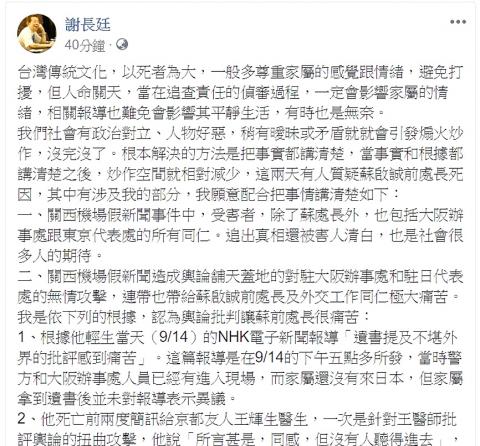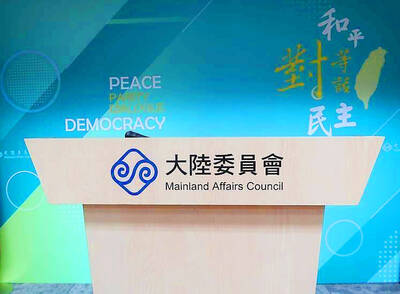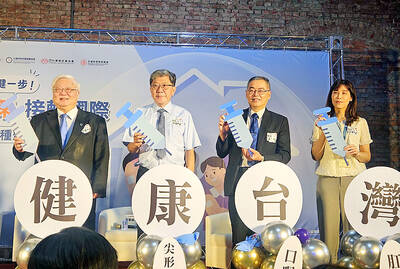The widow of a former diplomat to Japan, who committed suicide in September after his office had come under fire for its handling of stranded Taiwanese tourists due to a typhoon, on Thursday denied that false information drove her husband to take his own life, saying that it was instead “anticipated humiliation” by his superiors.
In a statement issued through Eastern Broadcasting Co (EBC, 東森電視), the wife of Su Chii-cherng (蘇啟誠), who was director-general of the Osaka branch of the Taipei Economic and Cultural Office until his death on Sept. 14, said that only family members had read Su’s suicide note, which did not mention pressure caused by fake news.
“Rather, he committed suicide after finishing a reflection report ordered by his superiors and on the eve of a work meeting to defend his honor, leaving behind a note saying that he ‘does not want to be humiliated,’” said Su’s wife, who did not make her name public.

Screengrab from the Internet
She was referring to a meeting originally scheduled for Sept. 15 between the nation’s six branch offices in Japan to discuss how to revise their emergency response protocols.
She said that she felt the need to go public because some politicians and news outlets have purposefully misled the public at the expense of Su’s reputation following a district court’s decision earlier this month to dismiss charges against a student who was accused of spreading misinformation that fueled public criticism of Su’s office.
The student in September posted a message on social media saying that the Chinese embassy had sent 15 tour buses to evacuate its citizens and Taiwanese who were stranded at Osaka’s Kansai International Airport due to flooding from Typhoon Jebi.
At the time, Su’s office had also been accused of refusing to help a stranded Taiwanese tourist find accommodation.
The false information was believed to have contributed to his death, as Japan Broadcasting Corp reported on the day of his death that a note left by him suggested that he had been in pain because of overwhelming public criticism over his office’s handling of the stranded tourists.
In an interview with EBC that aired on Thursday, Su’s wife said that there was no direct link between the false information and her husband’s death, because what he found “unbearable” was the possibility of him being recalled to Taiwan.
An article published by the Chinese-language Apple Daily late on Thursday cited “internal government information” as saying that the reason for Su’s suicide was a 20-minute telephone call from the Ministry of Foreign Affairs on Sept. 13 informing him that he would be transferred back to Taiwan with a minor demerit and that his office’s staff would all receive a “C” performance rating.
However, the ministry yesterday said in a news release that it had not planned punitive measures against Su and his staff as reported by the media, adding that the telephone call did not happen.
“Punitive measures are only meted out after the liability of concerned parties is ascertained... That process had not been completed for the case in question at the time,” the ministry said.
Chinese Nationalist Party (KMT) caucus whip Johnny Chiang (江啟臣) yesterday urged Control Yuan members to launch an investigation into the issue, and called on the ministry to disclose the truth and for responsible parties to step down.
In a Facebook post that listed seven points as well as text messages that Su sent to his friend Wang Hui-sheng (王輝生), Representative to Japan Frank Hsieh (謝長廷) said that “it is likely true that [Su] agonized over the fake news.”
Hsieh added that he would file suit against former Presidential Office deputy secretary-general Lo Chih-chiang (羅智強) for saying that the “Democratic Progressive Party government and Hsieh are the ones who drove Su to his death.”
Additional reporting by Chen Yun and Peng Wan-hsin

A Chinese aircraft carrier group entered Japan’s economic waters over the weekend, before exiting to conduct drills involving fighter jets, the Japanese Ministry of Defense said yesterday. The Liaoning aircraft carrier, two missile destroyers and one fast combat supply ship sailed about 300km southwest of Japan’s easternmost island of Minamitori on Saturday, a ministry statement said. It was the first time a Chinese aircraft carrier had entered that part of Japan’s exclusive economic zone (EEZ), a ministry spokesman said. “We think the Chinese military is trying to improve its operational capability and ability to conduct operations in distant areas,” the spokesman said. China’s growing

BUILDUP: US General Dan Caine said Chinese military maneuvers are not routine exercises, but instead are ‘rehearsals for a forced unification’ with Taiwan China poses an increasingly aggressive threat to the US and deterring Beijing is the Pentagon’s top regional priority amid its rapid military buildup and invasion drills near Taiwan, US Secretary of Defense Pete Hegseth said on Tuesday. “Our pacing threat is communist China,” Hegseth told the US House of Representatives Appropriations Subcommittee on Defense during an oversight hearing with US General Dan Caine, chairman of the Joint Chiefs of Staff. “Beijing is preparing for war in the Indo-Pacific as part of its broader strategy to dominate that region and then the world,” Hegseth said, adding that if it succeeds, it could derail

COMPLIANCE: The SEF has helped more than 3,900 Chinese verify documents, indicating that most of those affected are willing to cooperate, the MAC said More than 3,100 spouses from China have submitted proof of renunciation of their Chinese household registration, the Mainland Affairs Council (MAC) said yesterday. The National Immigration Agency has since April issued notices to spouses to submit proof that they had renounced their Chinese household registration on or before June 30 or their Taiwanese household registration would be revoked. People having difficulties obtaining such a document can request an extension of the deadline or submit a written affidavit in lieu of it. The council said it would hold a briefing at 2:30pm on Friday at the immigration agency’s Taichung office in cooperation with the

The government-funded human papillomavirus (HPV) vaccination is to be expanded to boys at junior-high school starting in September, the Health Promotion Administration (HPA) said yesterday. The Taiwan Society of Otorhinolaryngology, Head and Neck Surgery, the Taiwan Association of Obstetrics and Gynecology, the Taiwan Immunization Vision and Strategy, the Infectious Diseases Society of Taiwan, the Taiwan Head and Neck Society, the Formosa Cancer Foundation and the National Alliance of Presidents of Parents Associations held a joint news conference in Taipei yesterday to raise public awareness about the risks of HPV infection, regardless of gender. Invited to give an address, HPA Director-General Wu Chao-chun